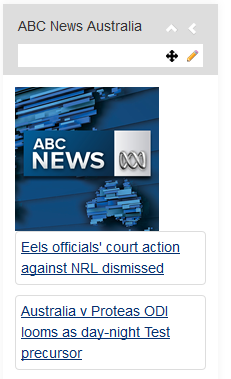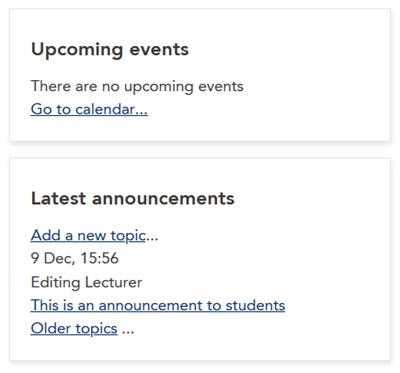The 'Latest Badges' Block will display all of the badges a student has earned within that LEO unit. Put simply, a badge is a digital representation of an activity completed within LEO. Badges are a way of extrinsically motivating your students to complete activities within your LEO unit, in a theory known as 'gamification'. Badges can function as a reward for the student upon completing particular tasks or series of tasks, and some students may be motivated to engage with additional activities within your LEO unit in order to collect all of the available badges.
This case study reports the results of an experiment at The University of Hong Kong, which sought to examine the effects of gamification on students’ engagement and learning. Gamification strategies, which included the use of digital badges, were found to be effective in motivating students to view and post more within the Moodle environment. Students in the gamified group were more likely to engage with extra-curricular activities in the Moodle site (LEO unit) then students who were a part of the control group. The authors suggest that "in tertiary education, educators and practitioners may consider using gamification strategies, at least in the short term, to scaffold out-of-class learning" (2015, 280).
Huang, B., Hew, KF (2015) Do points, badges and leaderboard increase learning and activity: A quasi-experiment on the effects of gamification. In:The 23rd International Conference on Computers in Education. [online] Hanszhou, China: The 23rd International Conference on Computers in Education, pp.275 - 280. Retrieved from: https://www.researchgate.net/publication/286001811_Do_points_badges_and_leaderboard_increase_learning_and_activity_A_quasi-experiment_on_the_effects_of_gamification [Accessed 3 Dec. 2019].
 The Block is a versatile tool, which can allow you to bring in external web-based content for your students.
The Block is a versatile tool, which can allow you to bring in external web-based content for your students.

 Blocks are used in LEO to provide students and staff with additional information and functions in units.
Blocks are used in LEO to provide students and staff with additional information and functions in units.